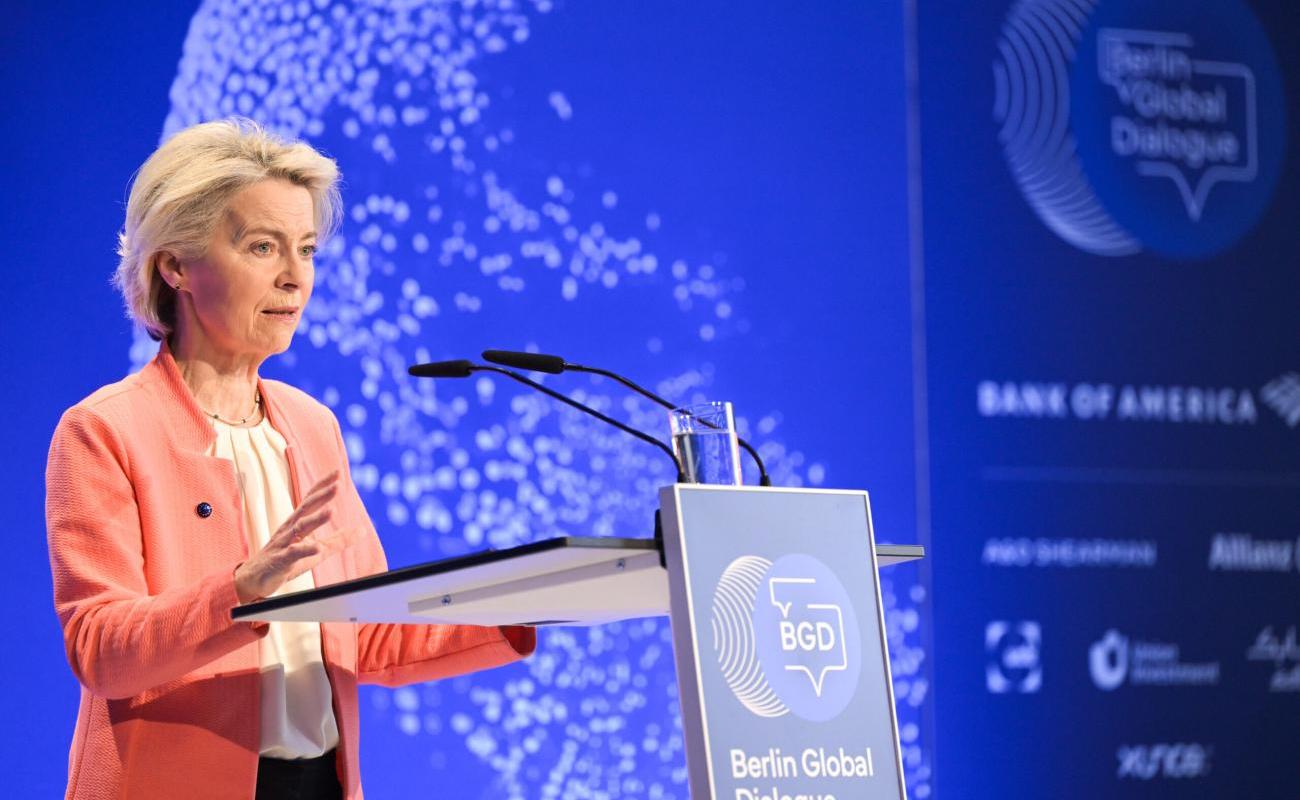EU-China at loggerheads: Brussels prepares response to Beijing’s restrictions on rare earths

Brussels – One crisis after another, now “at our doorstep,” the risk is a stop in the supply of critical raw materials. Alarm bells went off in Brussels—and in Washington—after China announced restrictions on the export of rare earths and related technologies. The tariff agreement between Trump and Xi Jinping signals a thaw, with Beijing reportedly pledging to postpone the entry into force of restrictions by one year. Meanwhile, on this side of the Atlantic, the European Union is sharpening the weapons at its disposal.
In a speech held on Saturday (October 25) at the 2025 Berlin Global Dialogue, the President of the European Commission, Ursula von der Leyen, said: “We are ready to use all of the instruments in our toolbox to respond if needed.” The priority – as it has been for months during the tariff deal negotiations with Washington – is “finding solutions with our Chinese counterparts.” But another surrender to the will of a great power could be politically fatal to the EU leader, who therefore does not rule out putting on the table those coercive measures that it had instead left in the drawer in the negotiations with its western ally.
In fact, von der Leyen views Beijing’s decision as carrying a risk of blackmail reminiscent of the energy leverage once used on Vladimir Putin’s Russia. The EU is vulnerable because it is highly dependent on Chinese imports of critical raw materials, crucial for the twin green and digital transition, just as it was on Moscow’s gas. “If you consider that over 90 percent of our consumption of rare earth magnets comes from imports from China, you see the risks here for Europe and its most strategic industrial sectors. From automotive to industrial motors, defense to aerospace, or AI chips to data centers,” she admitted in his speech at the Berlin kermesse. A “significant risk,” a “threat to the stability of global supply chains” that “will have a direct impact on European companies.”
Brussels has at its disposal the so-called European “bazooka,” the anti-coercion instrument that came into force in December 2023, but has never been used. In the event of deliberate trade threats from third countries, it provides a series of countermeasures, from the imposition of tariffs to restrictions on trade in services and aspects of intellectual property rights, to restrictions on access to foreign direct investment and government procurement. Only three months after the EU-China summit celebrating the 50th anniversary of diplomatic relations between Brussels and Beijing, the idea of using such an instrument suggests how rapidly the relationship with the Asian giant is deteriorating.
In parallel, the European Commission has reportedly put a new plan to tackle the “structural challenge” of raw material supply in the pipeline. It will be called ReSourceEU, along the lines of that RePowerEU launched in May 2022 to tackle the energy price crisis triggered by the Russian invasion of Ukraine. “The aim is to secure access to alternative sources of critical raw materials in the short, medium, and long term for our European industry,” von der Leyen explained. The plan will include measures to promote the circular economy, to exploit essential raw materials already contained in products sold in Europe, support collective purchasing, and facilitate strategic storage. Furthermore, “we will accelerate work on partnerships for critical raw materials with countries such as Ukraine, Australia, Canada, Kazakhstan, Uzbekistan, Chile, or Greenland,” the EU executive chair added. Just the day before, the EU signed an enhanced agreement (EPCA) with Uzbekistan.
Meanwhile, this morning, on the sidelines of the ASEAN countries’ summit in Kuala Lumpur, the President of the European Council also made a move. In a bilateral meeting with Chinese Premier Li Qiang, Antonio Costa emphasized “the importance the EU attaches to constructive and stable relations with China” and expressed “strong concern about the extension of export controls on critical raw materials and related goods and technologies.” Costa called on Beijing to “restore smooth, reliable, and predictable supply chains as soon as possible.”
